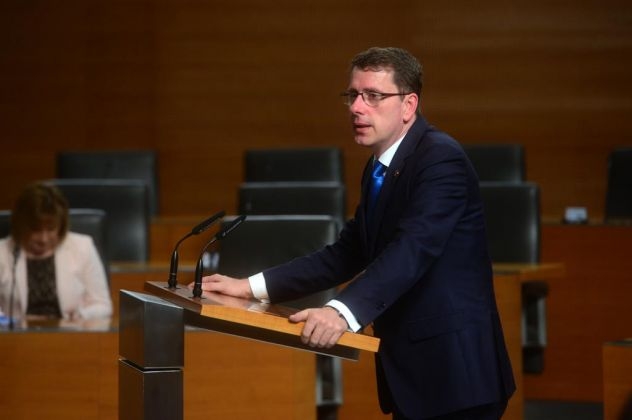After a series of unsuccessful interpellations, the opposition decided to use an instrument of a proposal for a constitutional indictment out of a desire for a new government. Yesterday’s debate, which ended miserably again, served with a whole bunch of nonsense and untruths, which undoubtedly include the statement of MP Jani Möderndorfer from Šarec’s LMŠ party, who stated the following: “Please, who else believes us anything. We are the last on the agenda. They do not want to mention Slovenia.”
Of course, this is a lie, as best proved by the statements of German Chancellor Angela Merkel, German Foreign Minister Heik Maas, and Austrian Chancellor Sebastian Kurz. Namely, at a joint conference with Slovenian Foreign Minister Dr Anže Logar, Maas clearly and loudly stated that bilateral relations between Slovenia and Germany have never been as close as they are now. In a joint statement with Janša, Chancellor Kurz emphasised that he thanks him for his constant good cooperation during the epidemic.
Prime Minister Janša was also supported by Merkel
The statement of German Chancellor Merkel was especially resounding, as she is considered one of the most influential leaders in Europe and the world, and it is also known that Germany is one of Slovenia’s most important economic partners. After Janša wrote a letter of reconciliation to European leaders and called on them to compromise to find an acceptable solution to approve the Union’s recovery package after the new coronavirus pandemic, the mainstream media, in unison with the opposition, began to inveigh against Janša, how he is supposed to bring shame to Slovenia. That this is definitely not the case was proved by Merkel’s statement, which highlighted Janša’s efforts in a positive light and added that the German presidency, like Janša, wants to find a compromise. By doing so, she gave the Prime Minister a recognition that has not been heard about in the past!
These three concrete examples indisputably prove that Jani Möderndorfer’s statement is far from the truth. Namely, during the rule of the center-right government, foreign policy became self-confident, its alliances became stronger in all countries of the world with which we share values and interests. In addition, it has succeeded in participating in the trio of presidencies of the Council of the European Union in pursuing common goals for the digital and green renewal of the European Union. After ten years, Slovenia has also strengthened relations with the United States. During the time of left wing governments, Slovenia preferred to flirt with undemocratic countries.
To say that no one believes us and that they do not appreciate us is, of course, a cliché that is tirelessly repeated by the left opposition. It is especially funny when such a statement comes from the ranks of the LMŠ, which led the previous government until Marjan Šarec threw in the towel. During Šarec’s government, foreign policy was terrible and without any ambitions. What kind of reputation we enjoyed at that time is illustrated by the report on Šarec’s resignation, when none of the European media knew what Šarec looked like. The news of the resignation was accompanied by a photo of Croatian Prime Minister Andrej Plenković. In foreign policy, it is not enough to just tell jokes about baking donuts and avoid speeches in the European institutions, but to find concrete solutions and make compromises.
Nina Žoher


